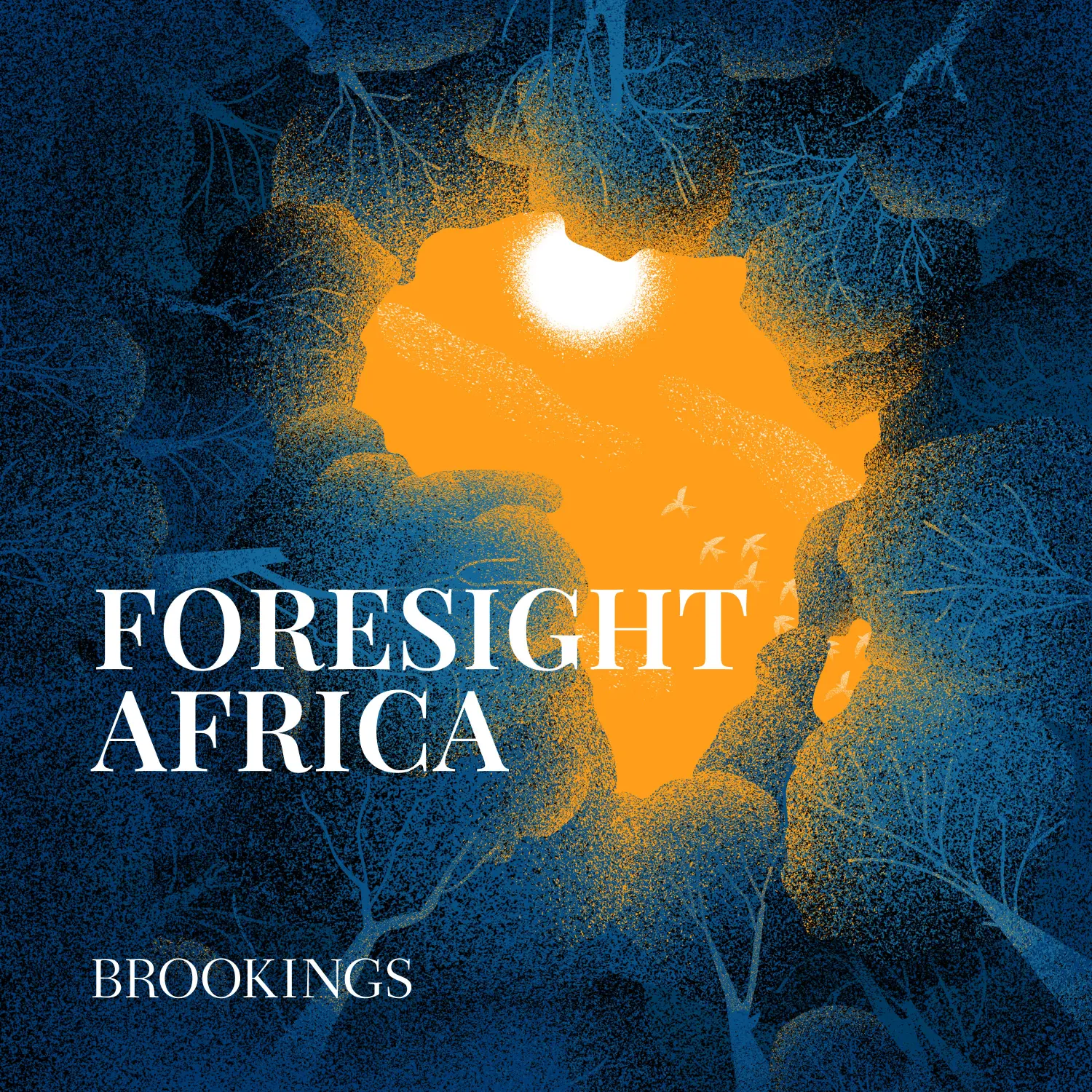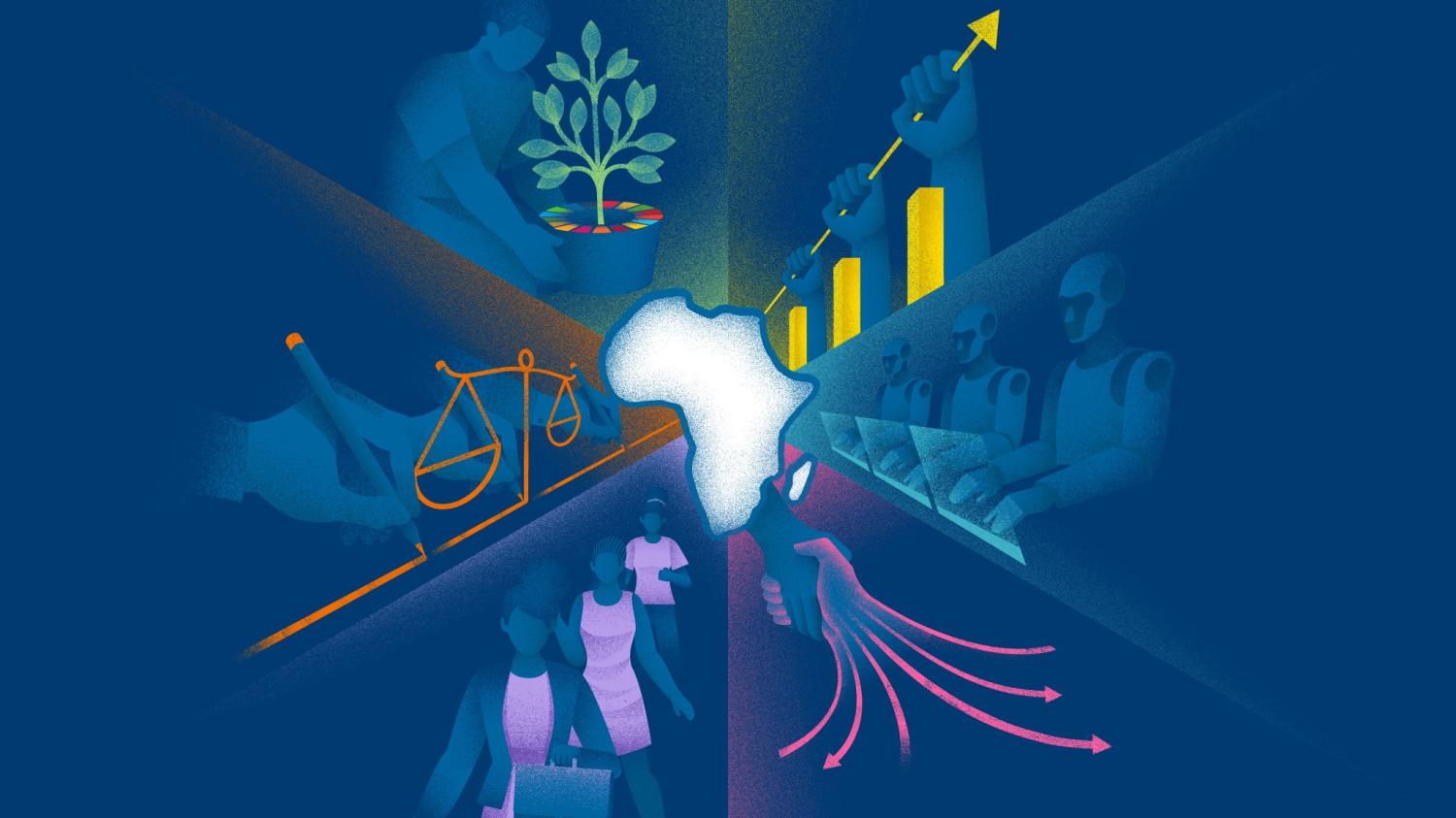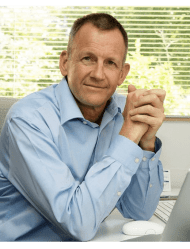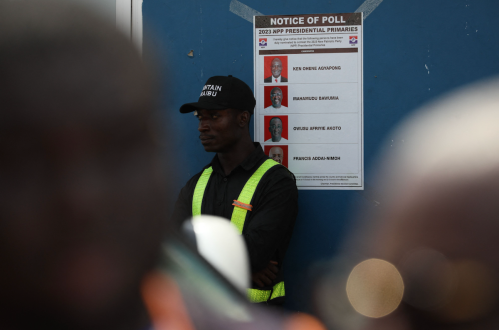Host Landry Signé and fellow futurist Jakkie Cilliers, founder of the Institute for Security Studies and head of its African Futures Innovation Programme, discuss the importance of evidence-based forecasting for preparing for shaping a brighter future in and for Africa and how youth are key to achieving the best-case scenarios for African economies.
- Subscribe to Foresight Africa on Apple, Spotify, Afripods, or wherever you listen to podcasts.
- Listen to previous episodes.
- Watch episodes on YouTube.
- Learn about other Brookings podcasts from the Brookings Podcast Network.
- Sign up for the podcasts newsletter for occasional updates on featured episodes and new shows.
- Send feedback to [email protected].
Transcript
[music]
SIGNÉ: Hello, I am Landry Signé, senior Fellow in the Global Economy and Development Program and the Africa Growth Initiative at the Brookings Institution. Welcome to the Foresight Africa podcast where I engage with distinguished leaders in policy, business, academia, and civil society to share their unique insights and innovative solutions to Africa’s challenges while highlighting opportunities to advance engagement between Africa, the U.S., and the global community. You can learn more about this show and our work at Brookings dot edu slash Foresight Africa Podcast.
My guest today is Doctor Jakkie Cilliers, founder and former executive director of the Institute for Security Studies, ISS. Today, he is the chairman of ISS’s Board of Trustees and head of its African Futures, an innovation program which is leading incredibly wonderful work on the continent. Dr. Cilliers is also a previous contributor to the Foresight Africa report and a regular commentator on African security and development issues. His most recent book, The Future of Africa: Challenges and Opportunities, sets out where he thinks Africa will be in 2040 and what can be done today to improve that future.
Thank you so much for being here today, Jakkie.
CILLIERS: Thanks, Landry. It’s a pleasure to be here and thanks for inviting me.
SIGNÉ: My pleasure. You and I first met on a thoughtful futurist panel in 2020 and just after the release of our respective books, Africa First for you and Unlocking Africa’s Business Potential for me. And I’m truly delighted to welcome you to this season and to continue our rich dialogues on Africa’s trajectory.
Since we met, we have both remained engaged in forecasting Africa’s future. I have continued exploring this theme in Africa’s Fourth Industrial Revolution and Realizing Africa’s Potential: A Journey to Prosperity, my two latest books, while you continue this work by heading the extremely important African Futures and Innovation program and publishing The Future of Africa: Challenges and Opportunities, among others. Why do you think foresight and forecasting are so important for researchers and policymakers today, and what impact do you hope your work has in that space?
[3:40]
CILLIERS: Thanks very much. Also for a copy of your book, Realizing Africa’s Potential, which I have with me. It’s an excellent read. I’ve read most of it. It’s really good.
But what we have done is we have moved away from publishing in hard copy on PDFs and through media houses. All our work, everything we do is in actual fact on our website. And my day job is consistently updating that website. So I will refer to that. It’s African Futures website, and you can find it. We can probably do the link in the show notes.
So, unlike traditional forecasting, which often relies on linear projections of past trends, strategic foresight embraces uncertainty and complexity. So typically we speak that it allows the forecasters to do four things: to anticipate; to drive innovation; to inform policy and strategy; and so on.
So, but of course, the future is not set. So what we do is we look at over successive years—I’ve been doing this for about 15 years now—we constantly update our forecasts on Africa. And we also explore alternative futures, but what we do is we look at what is Africa’s current path, or its likely development trajectory given current conditions. And then we forecast various sectoral scenarios to look at what is the impact of, let’s say, better agriculture, better education, a change in Africa’s health, a manufacturing revolution.
So that’s what we mostly do on the website, although we also look at alternative global futures and how that impacts on Africa. And we model various things like the impact of different carbon taxes on Africa’s development trajectory. So that’s a brief introduction to the kind of work that I do.
SIGNÉ: Amazing, Jakkie! And will you mind elaborating a little bit on the impact that you have had and hope to have with this extremely important work?
[5:44]
CILLIERS: So we mostly work with AUDA-NEPAD, the African Union Development Agency slash New Partnership for Africa. They have a secretariat, and they are in charge of the Africa Union’s “Agenda 2063: Long-term Vision for Africa.” And our major clientele, our major partners are African governments. So two weeks ago I was in Abuja, and the Office of the Vice President hosted a large meeting where I presented our forecast on Nigeria’s future, where Nigeria is heading, where we think Nigeria is heading on its so-called business as usual or current path forecast. And then mainly what is possible with a more rapid demographic transition, manufacturing transition, and so on and so forth.
So our work is primarily with African governments and with agencies engaged in Africa and less so with the private sector. So I found our last meeting at the World Economic Forum, where the two of us were, very interesting because we work less with the private sector, I think, than you do. When I read Realizing Africa’s Potential, you come to it from a very different perspective than I do. I come to sort of from a bit of a state led perspective. You come to it a much more from a private sector developmental innovative perspective.
SIGNÉ: Amazing, Jakkie!
In your most recent book, The Future of Africa, you model what progress will look like across many areas of Africa’s human and economic development. What can you tell our audience about your methodology for this book and how do you overcome challenges in assessing quality data for African countries.
[7:29]
CILLIERS: So we partnered with the Frederick S. Pardee Institute for International Development at the University of Denver. And we used their forecasting platform, which is known as IFs, International Futures, for our forecasting. Literally everything we do on our website uses IFs. So IFs is a incredibly impressive, originally an educational tool that was developed and is now becoming mainstream. It’s open source and free to use, by the way. So it’s a model of models in many ways. So it has more than five and a half thousand data sets in it. You’re able to forecast 500 variables for 183 countries in the world. And they are quite detailed.
So you’re quite correct when you point to the data challenges in Africa. I mean, Somalia had the last population survey, I think in 1987. But what IFs does, it uses historical data and then it has a very powerful data preprocessor which fills the data gaps. And because that preprocessor uses stuff like GDP per capita and so on to estimate, let’s say growth and development, actually the forecasts are quite accurate.
So in one sense, we have data for everything because IFs fills the date gaps because it needs to know what is the rate of female education net at, let’s say, primary school level for Lesotho, because it needs to complete the Lesotho educational forecast.
So we draw our data mostly from global data providers, the big guys, the World Bank, the IMF, and so on. Because the big guys, the UN Population Division, they spend a lot of time in making sure the data is harmonized. Because very often in Africa, we run into the problem that Africans would say, whose data are you using? And then you say, it’s World Bank or whatever data. And they say, but why don’t you use our data? But the reality is the World Bank gets its data from the country concerned.
So, national data goes up, the World Bank and the others standardize the data. And when you use a large modeling platform like IFs, you need to be able to pull in large data sets, because you’re dealing with millions of data points.
So our data is from World Health Organization, Food and Agriculture Organization, Population Fund and so on. And these organizations invest considerable resources in standardizing the data. And that means that, yeah, your data on, let’s say, educational attainment is just better than trying to access it from an individual country, which may not adopt the same standards for net versus gross educational attainment for upper secondary level that the country may use. So these are some of the limitations and opportunities.
SIGNÉ: Fantastic, Jakkie! In the four years since The Future of Africa, how would you assess our progress in building the better future you describe in the book?
[10:34]
CILLIERS: The first real book that I published on Africa’s long-term future, Africa First, came out at the time of COVID, right at the start of COVID. So, at the time, actually, we did a big study on the impact of COVID, on the long- term impact of COVID, and that stood the test of time.
But what has happened is that since 2007-2008, global growth has declined and global growth has a real impact on Africa. So we see how Africa’s growth potential is slowly but surely coming down with each year that we update our data, and because the model is being updated with the latest data the whole time. So as you bring in the latest growth forecasts from the IMF and the World Bank, you see Africa’s prospects actually declining. This is hugely concerning. So COVID, big issue.
But I think the other thing, of course, at the moment is the huge disruptions that are associated with the presidency of Donald Trump globally, and the shifts in global power that we see. We see, very likely in our view, a more rapid decline of the United States over time, the more rapid ascendancy of China. Each one of these comes with certain risks. But those are sort of some of the major challenges that we’ve seen.
SIGNÉ: This is incredibly fabulous! And what has been the most unexpected development since then that is likely to influence Africa’s trajectory?
[12:01]
CILLIERS: I think at the moment probably most people will say artificial intelligence and issues around that and the rapid growth. I don’t think that that’s going to have as rapid and as vast a potential change in Africa because, you know, 600 million Africans don’t have access to electricity, and I think 400 million to broadband internet access. So you first need to get those two things to them before you get the growth potential.
And I think there’s a bit of a hype around artificial intelligence. But who knows where that’s going to do. We try and model leapfrogging as one of the areas in which we engage. But there’s always a big difference between that well-known book or between the signal and the noise, because what is in actual fact going to have an impact on productivity in Africa?
And the main issue here is that Africa’s major source of growth is labor. And our labor is generally poorly skilled and in poor health. So we come to the market with a large labor supply; the rest of the world has a large labor demand, well, particularly Europe and North America, Asia, not so much. How is this going to play off? Particularly given the current context, concerns around the migration. So that interplay is an important one.
I think another one that I’ve spent a lot of time on is looking at the relationship between democracy and growth. For decades, we’ve been told that democracy is a good, and it’s also good for growth. But at low levels of development, I’m not that sure if that is true. As countries go up the GDP per capita level, that is clearly true. But at lower levels for poor countries, it’s a challenge.
And of course democracy remains the best of all other solutions, but it also creates its own problems, and Africa is already quite democratic, and you can’t roll it back. So those relationships are some of the important ones that I grapple with.
SIGNÉ: Amazing Jakkie! As futurists, we have spent a lot of time thinking about how African leaders can overcome challenges and leverage untapped resources across the continent. It is something I highlight in Realizing Africa’s Potential, laying out pathways to transformation grounded in innovation, governance, and regional integration, in addition to seizing the unique business opportunity. And that you compellingly explore in your book, Africa First. Looking at the present moment, what gives you the greatest hope for Africa’s future? And which levers of change do you believe are most crucial today to realize our shared visions for Africa’s success?
[14:53]
CILLIERS: Well, clearly Africa’s largest asset is its young, dynamic population, rapid urbanization, rapid uptake of modern technology. As I said, I was in Abuja two weeks ago, and just the hustle and the bustle and the innovation and the energy, I mean, it’s just amazing. So I think that that must be where our great hope lies and the promise for Africa.
And then I think I’ve mentioned some of my concerns around democracy and growth and so on and so forth. Long-term, having spoken about the greatest hope, my biggest concern is really, of course, the impact of climate change on Africa, and then the impact of labor-saving technology. Because if Africa’s greatest contribution is our potential large labor force, the rest of the world, the developed world, the Global North, and increasingly also Asia is investing in labor-saving technology. And how are these things going to come together? That takes us back to AI, artificial intelligence, and the issues around that.
SIGNÉ: Fantastic, Jakkie! I always like to end each interview by asking the guest two questions. First, building on your work and experience, what is one piece of advice you would give to African or global policymakers to ensure the best outcomes on the continent?
[16:19]
CILLIERS: I think there are too many. But the first is just the issue of greater transparency, particularly on loans, on military expenditure, on everything. I think greater transparency is very important. Honesty in your engagement with Africa’s citizens.
And I think the second piece of advice, and that’s particularly relevant given what’s happening—the announcement by a number of African elder statesmen to stand again—is to step aside when you’ve made your contribution. We have seen Africa, the youngest continent, governed by the oldest men. At what point is enough enough? Because you cannot build succession if you don’t move aside and build a pipeline of succession. And African leaders don’t do that. They stay in and they dominate the upper echelons and don’t give the youth actually the chance. So you have this irony that Africa, the youngest continent, is ruled by the oldest people, and Europe, the oldest continent, is ruled by youngest people.
SIGNÉ: I like the important insight, Jakkie. And second, given your successful career and impact, and please feel free to elaborate a little bit on your journey, Jakkie, what advice will you give to youth hoping to follow in your footsteps?
[17:43]
CILLIERS: I’ve been lucky in the sense that I have a security background, so I started off working in peace and security issues, but I’m a political scientist. And then over time I became frustrated—I think I told you the story. And then realized that dealing with the symptoms of the problem—military, police, and law and order—that doesn’t solve the problem. The problem is a developmental problem. And so over time my interests shifted entirely.
So I work on long-term forecasting development. I’m very lucky that I love what I’m doing. I find it interesting. And I spend all my time on that. I founded the ISS in 1990, just … a part of the transition in South Africa. And I was the head of the Institute until 2015, by which time I had resigned as executive director and handed over the Institute is now with its third executive director, Fonteh Akum, and the organization runs like a well-oiled machine. And it’s one of the things that I’m the proudest of is that the organization has survived me and I am no longer important in the running of the organization.
So I think it is maybe follow your passion. Work hard, be humble in what you do, treat others like you would like to be treated yourself. And I think those are the lessons, you know, as you get older you become wiser about these things, or you learn things, so I think those are the lessons that certainly I have learned.
[music]
SIGNÉ: Powerful! Thank you so much for joining me today, Dr. Jakkie Cilliers.
CILLIERS: Thank you very much.
SIGNÉ: I am Landry Signé, and this has been Foresight Africa. Thank you, listeners, for joining me today.
The Foresight Africa podcast is brought to you by the Brookings Podcast Network. Send your feedback and questions to podcasts at Brookings dot edu. My special thanks to the production team including Fred Dews, producer; Nichole Grossman, Dafe Oputu, and Nicole Ntungire, associate producers; Gastón Reboredo, audio engineer; and Izzy Taylor, senior communications coordinator in Brookings Global.
The show’s art was designed by Shavanthi Mendis. Additional promotional support for this podcast comes from my colleagues in Brookings Global and the Office of Communications at Brookings.
The Brookings Institution is committed to quality, independence, and impact.
We are supported by a diverse array of funders. In line with our values and policies, each Brookings publication represents the sole views of its author(s).









Commentary
PodcastPredicting a brighter future for Africa
Listen on
Foresight Africa Podcast
August 6, 2025